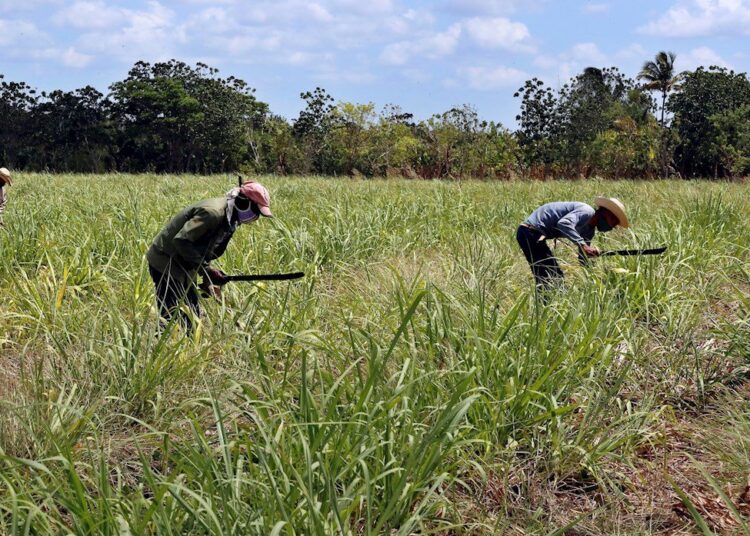The draft resolution presented by Cuba on the application of the circular economy in sugar cane was adopted this Friday by the United Nations Environment Assembly.
Under the title “Circularity of a resilient and low-carbon sugarcane agroindustry,” the document, co-sponsored by Brazil, addresses the loss of biodiversity, soil degradation and pollution, as well as a source of food, raw materials, biomaterials and bioenergy, Prensa Latina (PL) reported.
Aprueban oficialmente Resolución sobre aplicación de la economía circular en la caña de azúcar, primera que presenta #Cuba en estos espacios internacionales y primera aprobada en #UNEA 6 !Felicidades a quienes lo hicieron posible!@EdMartDiaz @SANTANACITMA@citmacuba pic.twitter.com/yEXjP8WQg3
— Ministerio de Ciencia, Tecnología y Medio Ambiente (@citmacuba) March 1, 2024
This is the first time in history that Cuba has presented a draft resolution before the United Nations Environment Assembly. With this step, the island invites member States with sugarcane agroindustries to integrate circular economy approaches into their respective national strategies.
Likewise, adds PL, it calls for exploring and developing partnership initiatives, in cooperation with the private sector and other actors, focused on supporting the implementation of these actions.
The approval of the Cuban resolution is considered one of the most important milestones achieved at the international level in the area of competence of the organization.
To try to revive the island’s depressed sugar industry, Cuba and Ethiopia agreed at the beginning of this year to collaborate in development, research, production and technical assistance in that sector.
The agreement seeks to improve capabilities, develop sugar cane varieties, biotechnological collaboration, technology transfer and trade within the sector, according to state television station Fana Broadcasting Corporate, cited by Prensa Latina.
The general director of the Ethiopian Sugar Industry Group, Wayo Roba, and his Cuban counterpart, Francisco René Martín, agreed to “increase the production capacities of sugar factories and improve competence in maintenance and operational management.”
Only 11 of the 22 planned sugar mills were operational at the beginning of 2024 as part of the current sugar harvest in Cuba, as confirmed by official sources. Although this figure is presumably higher today, this situation compromises the development of a planned downward productive harvest.










